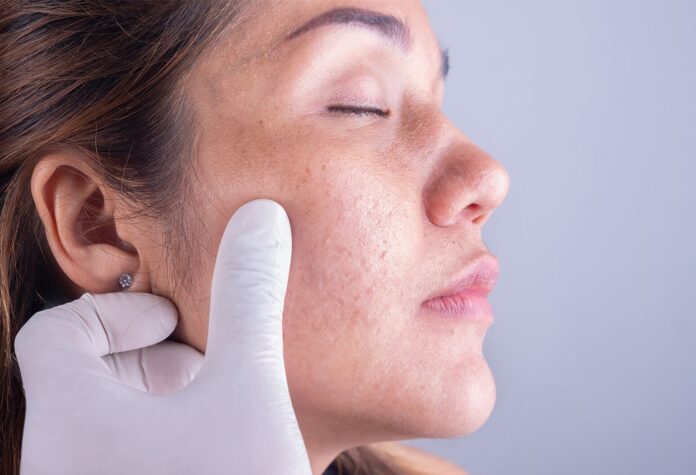Our skin is the largest and one of the most vital organs in the human body, acting as a protective barrier against environmental damage, bacteria, and internal stressors. Maintaining skin health goes far beyond just cosmetic appeal—it’s a vital part of overall wellness. This is where a Dermatologist plays a crucial role. A dermatologist is a medical professional trained to diagnose, manage, and treat conditions related to skin, hair, and nails. With deep knowledge of both aesthetic and medical skin care, dermatologists provide comprehensive assessments and evidence-based solutions tailored to individual needs. Whether you’re dealing with acne, aging signs, eczema, pigmentation, or unexplained rashes, a dermatologist’s expertise ensures you receive accurate diagnosis and proper treatment. Those seeking professional help can significantly benefit from consulting a Dermatologist in Dubai.
What Is a Dermatologist?
A dermatologist is a physician specialized in diagnosing and treating disorders related to the skin, hair, and nails. These medical professionals complete rigorous training, including medical school, a residency in dermatology, and often additional fellowships in subspecialties. They have extensive knowledge of internal diseases that manifest on the skin and can differentiate between cosmetic and pathological conditions.
Why Skin Health Matters
Skin health is essential not only for appearance but for overall physical protection and biological function. A healthy skin barrier protects the body from harmful microorganisms, regulates temperature, and assists in vitamin D synthesis. Poor skin health may be a symptom of underlying conditions or result in physical discomfort and psychological stress.
Dermatologists help maintain this vital organ by:
- Diagnosing skin conditions early
- Preventing the progression of skin diseases
- Offering targeted treatment strategies
- Enhancing skin texture, tone, and clarity
Key Areas Where Dermatologists Support Skin Health
1. Accurate Diagnosis and Personalized Assessment
The foundation of effective skin care is an accurate diagnosis. Dermatologists use dermatoscopes, biopsy techniques, and other diagnostic tools to identify the root cause of skin conditions. From common issues like rosacea or acne to complex autoimmune disorders, dermatologists identify patterns that the untrained eye may overlook.
They provide personalized assessments, considering factors such as:
- Skin type
- Genetic predispositions
- Hormonal changes
- Environmental exposures
2. Acne Management and Scar Reduction
Acne is not merely a cosmetic issue—it can be chronic, inflammatory, and psychologically distressing. Dermatologists are skilled in identifying the type of acne (inflammatory, hormonal, cystic, etc.) and designing long-term treatment strategies. Beyond treating active breakouts, they also offer procedures to reduce acne scars, restore skin smoothness, and prevent future outbreaks.
Common dermatologist-guided interventions include:
- Extraction techniques
- Chemical exfoliation (doctor-administered)
- Skin resurfacing
- Advanced skin cleansing routines
3. Anti-Aging and Preventive Care
Dermatologists play a pivotal role in helping individuals maintain youthful, firm, and vibrant skin. They assess the signs of premature aging, such as fine lines, dullness, sagging, and uneven pigmentation. Dermatologists can recommend age-appropriate strategies to improve collagen production, cell turnover, and skin elasticity.
Examples of doctor-guided anti-aging practices include:
- Stimulating dermal repair with non-invasive procedures
- Encouraging natural regeneration of skin cells
- Evaluating sun damage and reversing photoaging
4. Treating Pigmentation Disorders
Uneven skin tone, hyperpigmentation, melasma, and dark patches are common skin concerns that require professional intervention. Dermatologists investigate the underlying causes—ranging from sun exposure to hormonal imbalances—and implement strategies to fade discoloration and even out complexion.
They may recommend or perform:
- Tailored exfoliation routines
- Laser-based treatments (doctor-performed)
- Long-term maintenance regimens
- Assessment of internal triggers
5. Eczema, Psoriasis, and Chronic Skin Conditions
Managing chronic skin conditions like eczema, psoriasis, and dermatitis requires more than just topical care. Dermatologists assess how these conditions relate to the immune system, lifestyle, and genetic factors. They educate patients about skin-barrier restoration, symptom control, and long-term flare-up prevention.
They provide:
- Structured skin hydration strategies
- Allergen identification
- Skin microbiome support
- Behavioral triggers management
These approaches are designed to maintain remission and prevent worsening over time.
Benefits of Visiting a Dermatologist
Seeing a dermatologist provides countless benefits beyond what over-the-counter products can deliver. Here’s why dermatologist-led care stands out:
| Benefits | Description |
|---|---|
| Precision | Accurate diagnosis and tailored solutions |
| Expert Monitoring | Ongoing skin health evaluation and early detection |
| Long-Term Results | Doctor-designed strategies for sustainable outcomes |
| Holistic Insight | Consideration of internal and external factors |
| Access to Advanced Techniques | Use of medical technology and evidence-based approaches |
| Skin Confidence | Professional guidance boosts self-esteem and clarity |
The Role of Preventive Dermatology
Preventive dermatology emphasizes routine check-ups, skin screenings, and early interventions. Dermatologists encourage skin health before any symptoms appear, helping avoid future complications. Through skin mapping, mole monitoring, and lifestyle counseling, they equip patients with long-term knowledge and protection strategies.
Proactive care also includes:
- UV exposure management
- Early signs detection (e.g., melanoma)
- Seasonal skin adaptations
- Personalized skincare education
Common Reasons to Consult a Dermatologist
You should consider seeing a dermatologist if you experience:
- Persistent rashes or itching
- Sudden skin discoloration
- Non-healing wounds or sores
- Acne not responding to home care
- Hair loss or scalp irritation
- Unusual growths or moles
- Changes in skin texture
How Dermatologists Approach Skin Health Differently
What sets a dermatologist apart is their scientific methodology. Every skin evaluation is thorough and evidence-backed. They do not rely on trends or guesswork. Instead, they focus on:
- Lab testing and analysis
- Medical imaging where needed
- Skin biopsies when required
- Clinical documentation for future comparisons
Doctor-Guided Skin Care Routines
Dermatologists help establish customized routines suited to different skin types, ages, and concerns. Unlike commercial skin-care advice, a dermatologist’s guidance is grounded in medical science. They provide structured regimens that may include cleansing schedules, hydration techniques, and exfoliation timing.
Dermatologist-led skin care:
- Improves skin function, not just appearance
- Respects the skin barrier and microbiome
- Is adapted as the skin changes over time
- Focuses on safety, efficacy, and sustainability
Why Early Dermatological Intervention Is Important
Delaying skin care or relying solely on commercial products can allow conditions to worsen. Early dermatologist intervention not only prevents complications but also improves treatment efficiency and minimizes long-term damage.
Prompt dermatological care ensures:
- Efficient management of symptoms
- Reduced scarring or pigmentation
- Lower risk of infection
- Enhanced skin texture and tone
- FAQ’s:
- Q1: Can dermatologists treat all skin types and tones?
- A: Yes. Dermatologists are trained to work with diverse skin types and ethnicities, tailoring care for specific concerns such as pigmentation or sensitivity.
- Q2: How often should I visit a dermatologist?
- A: Ideally, once a year for a full skin exam, or more frequently if managing a chronic condition.
- Q3: Do I need a referral to see a dermatologist?
- A: In many cases, you can book directly. However, some healthcare systems may require a referral.
- Q4: What’s the difference between cosmetic and medical dermatology?
- A: Cosmetic dermatology focuses on appearance (wrinkles, scars), while medical dermatology addresses skin diseases (eczema, psoriasis, infections).
- Q5: Can a dermatologist help prevent skin cancer?
- A: Absolutely. Through screenings, mole mapping, and sun protection education, dermatologists play a vital role in early detection and prevention.
Conclusion:
Dermatologists are at the forefront of skin health, offering a medically structured approach to diagnosing, managing, and enhancing skin, hair, and nails. Their role extends far beyond aesthetics—they are partners in your lifelong journey toward optimal skin health. Whether you’re managing a chronic condition or seeking preventive strategies, consulting a dermatologist ensures your skin receives the care it truly deserves.






























